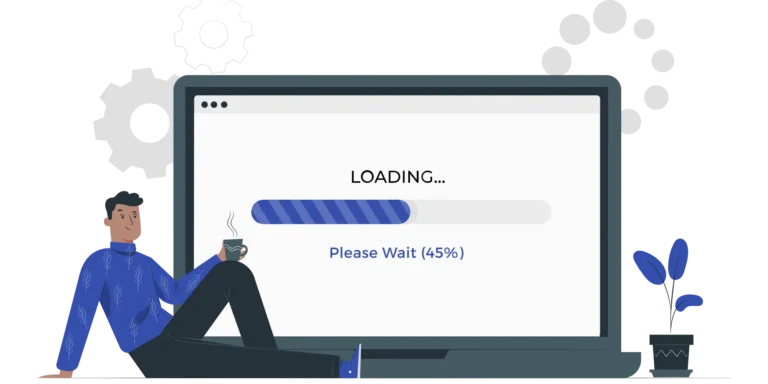Intro
How does website speed affect SEO rankings? This is a crucial question for WordPress site owners, small businesses, and agencies looking to improve their online presence. Website speed is major in search engine rankings, user experience, and overall performance. In 2025, Google’s ranking algorithms continue to prioritize fast-loading websites, making speed optimization a must for WordPress site owners.
Whether you run a small business website, an eCommerce store, or an agency, understanding how website speed affects SEO rankings is essential for staying competitive. This guide explores why speed matters, the technical factors involved, and practical steps to improve your WordPress site’s speed for better SEO rankings.
Table of Contents
Why Website Speed Matters for SEO Rankings
Search engines, particularly Google, prioritize fast-loading sites because they provide a better user experience. Here’s how website speed affects SEO rankings:
1. How Does Website Speed Affect SEO Rankings? Understanding Google’s Core Web Vitals
Core Web Vitals focus on three key aspects:
- Largest Contentful Paint (LCP): Measures how long it takes for the main content to load.
- First Input Delay (FID): Assesses user interaction and browser response.
- Cumulative Layout Shift (CLS): Evaluates the visual stability of a page.
A slow website can negatively impact these scores, resulting in lower rankings.
2. Mobile-First Indexing and Website Speed’s Impact on SEO Rankings
With over 60% of web traffic from mobile devices, Google prioritizes mobile-friendly sites. A slow-loading mobile experience can hurt your search rankings, especially for smartphone users.
3. Improved Crawlability and Indexing with Faster Website Speeds
Googlebot has a limited crawl budget. If your site is slow, fewer pages get indexed, reducing your chances of ranking higher in search results.
How Does Website Speed Affect SEO Rankings and User Experience?
A slow website isn’t just bad for SEO—it drives away visitors. Here’s why speed is crucial for user engagement

Higher Bounce Rates: Pages that take longer than 3 seconds to load see bounce rates increase by up to 32% (Google).
Lower Conversion Rates: A 1-second delay in load time can reduce conversions by 7%.
Reduced Time on Site: Users stay longer and explore more pages on a fast-loading website.
For businesses, eCommerce stores, and agencies, slow loading speeds can lead to lost revenue and fewer leads.
Google’s Key Metrics for Measuring Website Speed
Google uses several tools to measure website performance:
- Google PageSpeed Insights – Analyzes and provides suggestions for improving page speed.
- Lighthouse – A developer tool for evaluating web performance.
- Google Search Console – Provides Core Web Vitals reports.
Common Reasons Why WordPress Sites Are Slow
Understanding what slows down your site is the first step to fixing it. Common culprits include:
1. Heavy Themes and Excessive Plugins
- Bloated themes with unnecessary features can slow down your site.
- Using too many plugins, especially unoptimized ones, can degrade performance.
2. Unoptimized Images and Media Files
- Large, high-resolution images increase load times.
- Lack of proper compression and lazy loading can slow pages.
3. Slow Web Hosting and Server Response Time
- Cheap shared hosting often leads to slow performance.
- Poor server configurations and high traffic loads can delay response times.
4. Lack of Caching and Content Delivery Network (CDN)
- Without caching, pages take longer to load every time a user visits.
- CDNs help deliver content faster by using geographically distributed servers.
5. Excessive External Scripts and Third-Party Integrations
- Too many tracking codes, ads, and third-party services slow page loading.
- Unoptimized JavaScript and CSS files contribute to delays.
How to Improve Website Speed for Better SEO Rankings
Improving your site speed involves several strategies. Here are the best practices:
1. Choose a Fast and Reliable Hosting Provider
- Opt for managed WordPress hosting (e.g., Kinsta, WP Engine).
- Upgrade from shared hosting to VPS or cloud hosting for better performance.
- Use LiteSpeed or Nginx servers for faster load times.
2. Optimize Images for Faster Loading
- Use WebP format instead of PNG/JPEG for smaller file sizes.
- Compress images with tools like ShortPixel or Imagify.
- Implement lazy loading to only load images when they appear on the screen.
3. Use a Lightweight WordPress Theme
- Choose performance-optimized themes like Astra, GeneratePress, or Neve.
- Avoid themes with excessive built-in features that you don’t use.
4. Reduce Unnecessary Plugins and Scripts
- Audit and remove unused or slow plugins.
- Replace bloated plugins with lightweight alternatives.
5. Implement Caching and a Content Delivery Network (CDN)
- Use caching plugins like WP Rocket, W3 Total Cache, or LiteSpeed Cache.
- Enable browser caching to store static assets on users’ devices.
- Use a CDN (e.g., Cloudflare, BunnyCDN) to speed up content delivery.
6. Minimize JavaScript and CSS
- Reduce render-blocking resources using async or defer attributes.
- Minify and combine CSS/JavaScript with Autoptimize or WP Rocket.
Tools to Test and Monitor Your Website Speed
Regularly check your website’s performance using these tools:
- Google PageSpeed Insights – Offers performance scores and improvement tips.
- GTmetrix – Provides waterfall charts and performance reports.
- Pingdom – Tests website speed from various global locations.
FAQs
Aim for a Google PageSpeed Insights score of 90+ and a load time under 3 seconds.
Perform speed tests at least once a month or after making major changes.
Slow sites experience lower rankings, higher bounce rates, and reduced conversions.
Our Thought
Website speed is critical to SEO rankings, user experience, and business success. Optimizing hosting, images, caching, and scripts can improve your WordPress site’s performance and boost its search engine visibility.
For expert WordPress speed optimization and performance improvements, visit AssistanceWP to get professional support.


